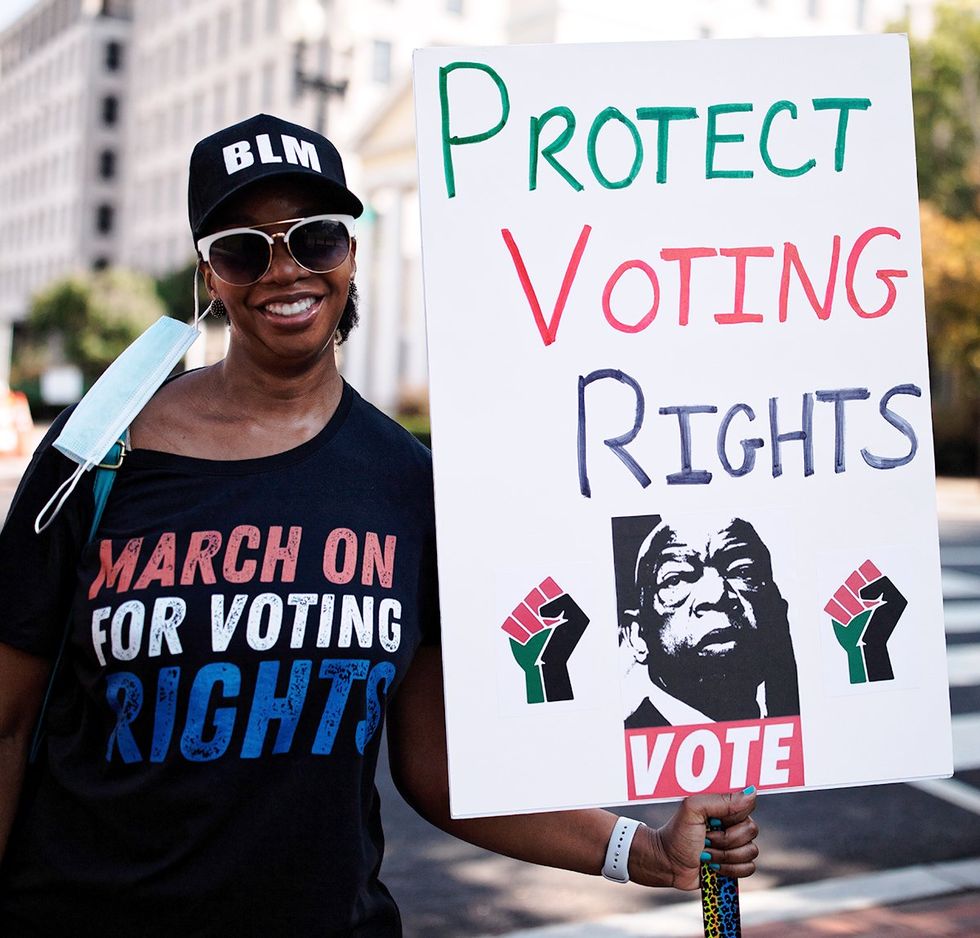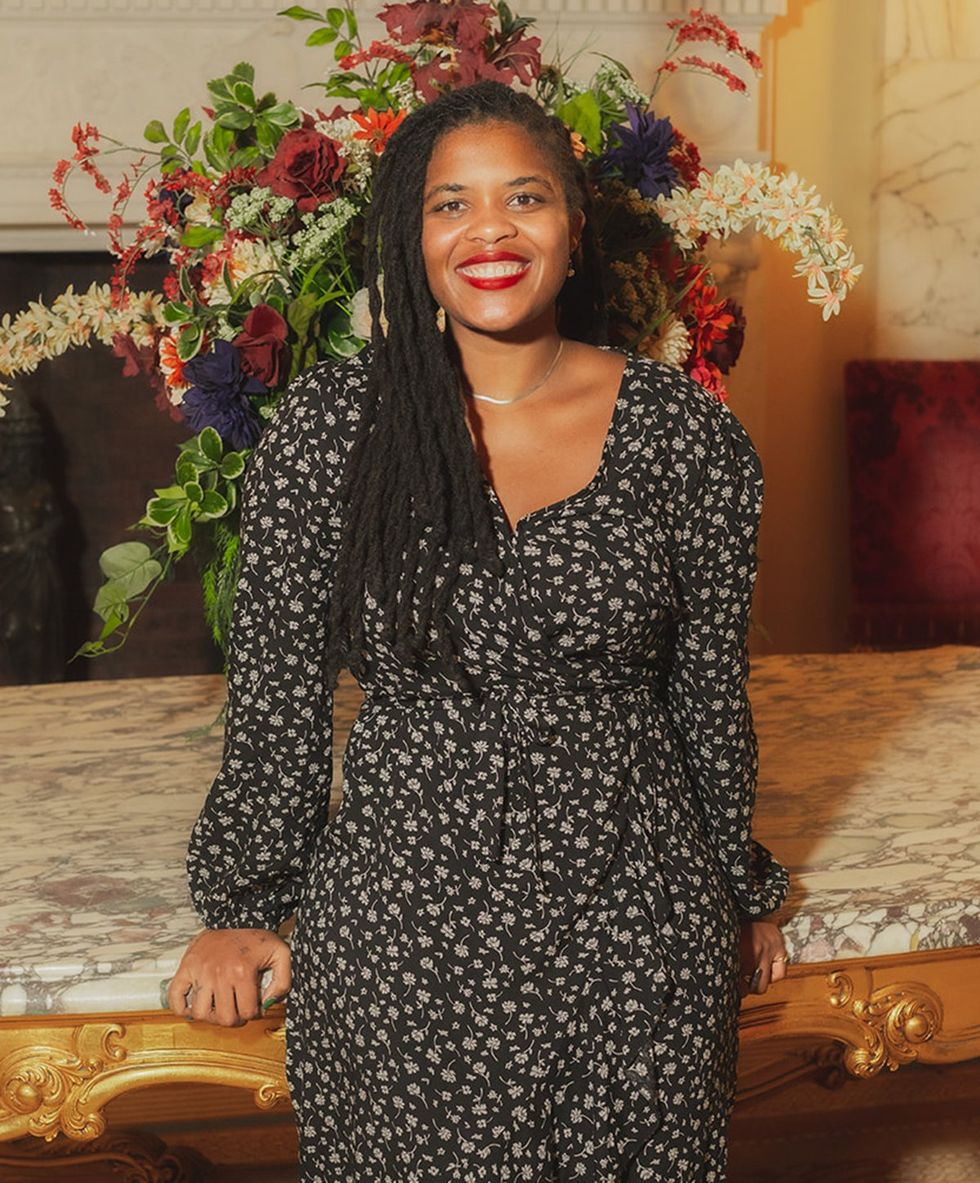The 2022 election cycle saw a record 141 Black out LGBTQ+ people run for office in the U.S. — but these candidates still face enormous obstacles, says a new report.
Keep up with the latest in LGBTQ+ news and politics. Sign up for The Advocate's email newsletter.
The obstacles include not only racism, homophobia, and transphobia but also financial challenges, a lack of role models, unfair media coverage, and more, according to the report, “When We Run: The Campaign Trail Experiences of Black LGBTQ+ Candidates,” released Tuesday. It comes from the LGBTQ+ Victory Institute and Loyola Marymount University’s LGBTQ+ Politics Research Initiative.
It analyzes data from a larger study by the two groups, 2023’s “When We Run: The Motivations, Experiences and Challenges of LGBTQ+ Candidates in the United States.” For that study, they surveyed LGBTQ+ people who ran for office in the U.S. between 2018 and 2022. With 470 respondents, it was the largest survey ever of LGBTQ+ candidates. Forty-seven of the respondents identified as Black and LGBTQ+ — about the same as the proportion of Black office-seekers among LGBTQ+ candidates overall during that period.
It looks at the responses from those 47 Black LGBTQ+ candidates and other Victory Institute data to explore the state of Black LGBTQ+ representation in the U.S.; the challenges Black LGBTQ+ candidates face when running for office; priority issues and the importance of LGBTQ+ identity on the campaign trail; and steps to confront racism, homophobia, and transphobia in political institutions and environments.
“Black LGBTQ+ people remain severely underrepresented in elected office — in part because of the obstacles cited in this report — with devastating consequences for Black LGBTQ+ people and all Americans,” the study notes. “Not having Black LGBTQ+ people fairly represented in the halls of power often leads to a lack of focus on, or outright opposition toward, policies that can positively impact their lives. It also contributes to a larger threat to American democracy, as Black LGBTQ+ people may disengage from running or voting without their voices represented.”
 Shutterstock
Shutterstock
There are 142 out LGBTQ+ Black people in elected office in the U.S., just 0.03 percent of all officeholders, when Black LGBTQ+ people account for 0.5 percent of the U.S. adult population. “To achieve equitable elected representation … 2,453 more Black LGBTQ+ people would need to be elected to office in the U.S.,” the report says.
Concerning challenges, 36 percent of respondents cited racism as one of the top challenges in their campaign, while 31.9 percent mentioned homophobia and 10.6 percent cited transphobia. “Every endorsing political organization I encountered demanded respectability politics,” one respondent said. “At each instance I encountered thinly veiled anti-Black racism or homophobia.” Many encountered homophobic or transphobic harassment while campaigning.
Other challenges included lack of support from political organizations; difficulty in fundraising; lack of role models; and double standards in media coverage.
Respondents to the report remained anonymous, but some Black LGBTQ+ officeholders have spoken about these challenges on the record. Rhode Island state Sen. Tiara Mack, the first out queer Black person in the legislature, told The Advocate she’s encountered intense homophobia during her campaigns and while in office. “I have been called a pedophile; I have been called a groomer,” she said, adding that few people defended her when that happened.
Mack, who is in her second term, found that when she first ran for office at age 25 in 2020, she found that some people didn’t take her seriously — they didn’t think a young queer Black person had the skills to be a lawmaker. She has proved she has the skills, but she hasn’t always gotten credit from media outlets, which were more interested in covering her twerking in a video than reporting on bills she’d gotten passed — sealing eviction records and making Juneteenth a paid state holiday, among others.
Also, Black candidates often don’t have access to the financial resources that white people do. She’s been asked why she can’t ask family members for $1,000, the maximum individual campaign contribution in Rhode Island, but most of her relatives couldn’t afford that, she pointed out.
 Langston Bowen
Langston Bowen
To improve the situation for Black LGBTQ+ candidates, she suggested upping support from the larger community and making these candidates more visible. The report from Victory Institute and Loyola Marymount echoes that, recommending that political parties and endorsing organizations make more resources available, both financial and otherwise; offer networking opportunities; increase diversity in staff and leadership; and identify and fight racism, homophobia, and transphobia.
Mississippi Rep. Fabian Nelson, a Black gay man who's the first member of the LGBTQ+ community in that state's legislature, said that simply showing people who he is and his commitment to advocating for policies that benefit all were factors that helped him overcome challenges.
In his campaign for office last year, he emphasized economic development, Medicaid expansion, and full funding for education. There has already been progress in the legislature on two of those issues — the state has funded two of the largest economic development projects in its history, and a Medicaid expansion bill is coming to the floor this week. He's still working on education, he noted.
He has embraced some other projects as well, such as sponsoring a bill establishing a Purple Alert, similar to an Amber Alert, for when people with cognitive issues, such as autism, go missing, and making sure that law enforcement response is appropriate. It passed the Mississippi House unanimously and will come up in the Senate soon.
"I see so many of our politicians dropping the ball — I think I can do a better job than they’re doing," he said.
Black LGBTQ+ Americans have much to offer regarding a variety of issues, the report notes. “Black LGBTQ+ candidates often mentioned housing, healthcare and employment as issues central in their campaigns — and often emphasized how these issues disproportionately affect Black and Brown LGBTQ+ people,” the document says.
“Our experiences are vital,” Mack added. Black LGBTQ+ people, she pointed out, are often experts on homelessness, gun safety, wealth inequality, and many other concerns, and it’s to everyone’s benefit when their stories are included in the political discourse.
"It's hard to say how monumental that is" to have people with diverse experiences making public policy, Nelson remarked. "When you have a person who’s walked in those shoes, it hits differently."
“Black LGBTQ+ leaders must be in the halls of power to ensure their unique perspectives are considered in policies that impact LGBTQ+ and Black people,” the report concludes. “When in office, their presence restores a belief in democracy, as others see themselves reflected in government. It encourages more people to participate by running themselves, campaigning for candidates and showing up at the ballot box. And when in office, Black LGBTQ+ leaders change the hearts and minds of colleagues and transform the legislative and policy debates, leading to more inclusive legislation and a better democracy.”


 Shutterstock
Shutterstock Langston Bowen
Langston Bowen

































































Charlie Kirk DID say stoning gay people was the 'perfect law' — and these other heinous quotes